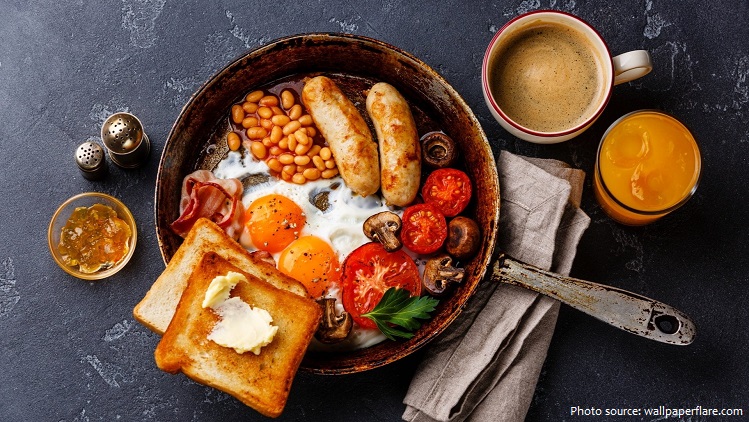
The Full English Breakfast also known as a fry up is a substantial cooked breakfast meal, often served in the United Kingdom and Ireland, that typically includes bacon, sausages, eggs, black pudding, baked beans, tomatoes, mushrooms, toast, and a beverage such as coffee or tea.
The regional variants, like the Scottish/Irish full breakfast, are usually exactly the same dish with slight changes to the ingredients, depending on the regional tastes and preference of the locals.
It dates back as far as the 1300s, making it one of the longest standing traditional dishes in English history. Back then, a breakfast of this sort was often deemed a luxury and therefore was reserved for only the richest in society.
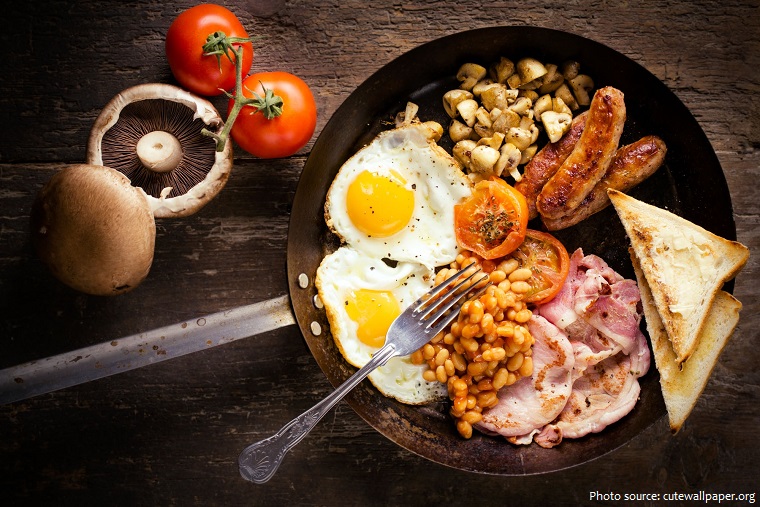
It was the gentry who initially introduced the idea of the full English breakfast in the 14th century. They were a social class consisting of aristocracy and like landowners and senior members of the clergy. They saw themselves as trues heirs to the Anglo Saxons and wanted to keep up the values and practices of the traditional Anglo Saxon lifestyle. Breakfast was considered to be the most important meal of the day in the country houses and country estates which also served as key hubs for the local society. They saw breakfast playing an integral role in social hospitality, as was traditional to Anglo Saxons, and soon became famous for their breakfast feasts.
A lavish breakfast was often served by the nobility or gentry at social or ceremonial occasions such as weddings. A wedding mass had to take place before noon, so all weddings took place in the mornings. The first meal the new bride and groom ate together would therefore be breakfast and became known as the ‘wedding breakfast’.
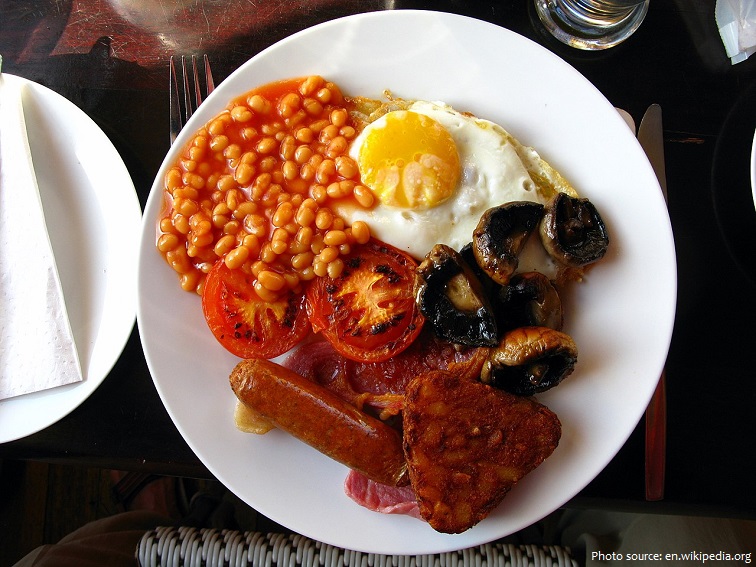
The Victorian era saw a wealthy middle class begin to emerge in British society who wished to copy the customs of the gentry, including the tradition of the full cooked breakfast. As the middle classes went out to work, breakfast began to be served earlier, typically before 9am.
Surprisingly, the full English breakfast was also enjoyed by many of the working classes. The punishing physical labour and long hours of work in the factories of the Industrial Revolution meant a hearty meal first thing in the morning was necessary. Even as late as the 1950s, almost half the adult population began their day with a good old English fry-up.
This style of breakfast was brought over by British immigrants to the United States and Canada, where it has endured. A full breakfast in these countries often consists of eggs, various meats, and commonly one type of fried potatoes – hash browns, home fries, Potatoes O’Brien, or potato pancakes – and some form of bread or toast. Big breakfasts of this kind are most often served on special occasions or weekends only, owing to the time needed to prepare them and the calories involved. In the Southern United States, grits are typically included.
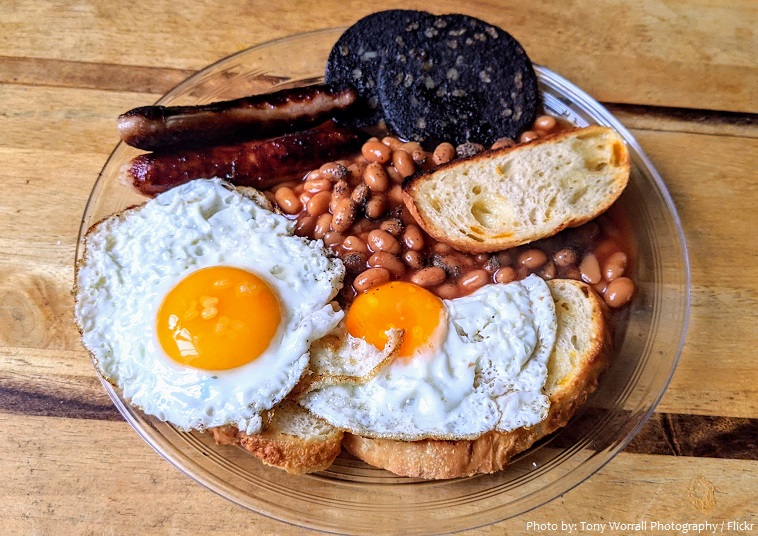
Canada and the US do not follow the trend of the rest of the Anglosphere, where tea is the usual hot beverage for breakfast, but rather both strongly prefer coffee, drunk black or with milk, cream, or sugar. Maple syrup is common to both nations, which have sugar shacks in their Eastern forests.
Today, the English breakfast is more popular than ever and you can usually find an English breakfast in most towns and cities across the country and overseas wherever you find the British. It is so popular that many cafes and pubs offer the meal at any time of day as an “all-day breakfast”. It is also popular in many Commonwealth nations.
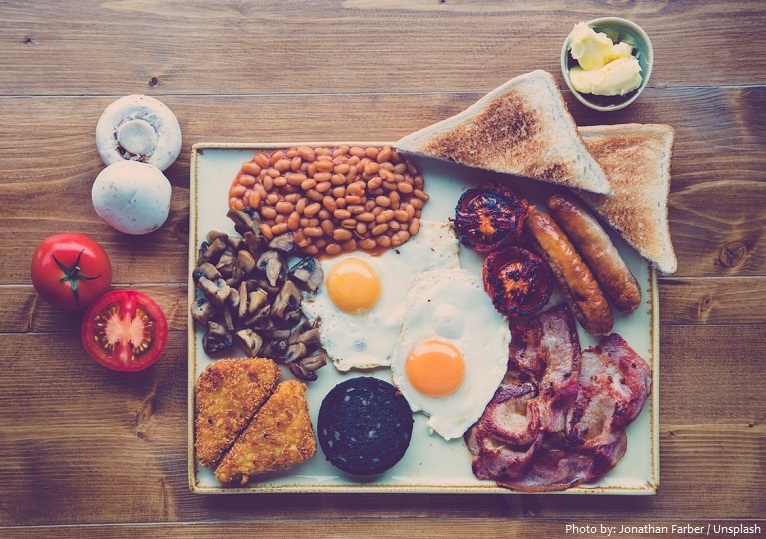
There is often fierce debate about which items should feature in a traditional full English breakfast today. Some argue that black pudding was inherited from the Scottish and should play no part in a traditional English breakfast, but a quick look at TripAdvisor reviews shows how dissatisfied customers can be today when black pudding – which was last year hailed as a super food due to its high iron content – is lacking from their plate.
The largest commercially available English breakfast weighs 3.928 kg (8 lb 10 oz) and is available for €19.95 (£15.93 – $24.81) on the menu at the Hard Boiled Egg Café (Ireland), Cavan town, County Cavan, Ireland, as of 29 August 2009.
The Feversham Arms have an £120 fry-up to their menu, this is now the most expensive breakfast served in England!